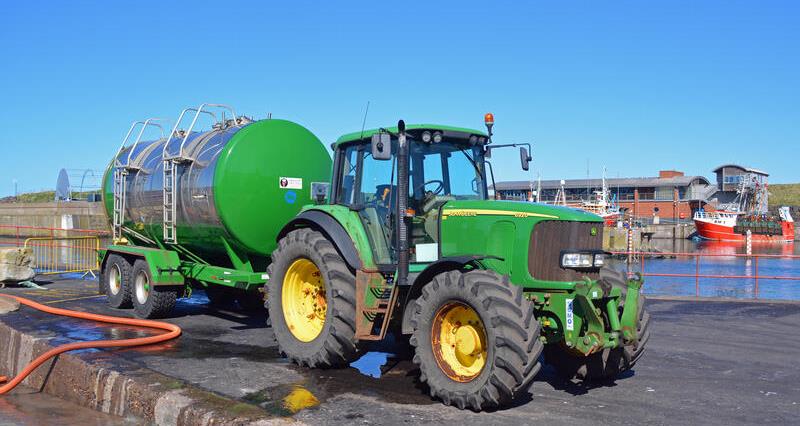There is no legal definition for fuel bowsers, but they are recognised as portable tanks moved on wheeled trailers that are used for movement of quantities of dangerous goods, such as diesel or kerosene. They are often transported by vans, 4x4 vehicles or tractors.

More guidance on Intermediate bulk containers (IBCs) from the Department for Transport can be found at: Guidance | Methods for initial and periodic examination and testing of individual IBCs
Moving fuel bowsers
If you are using agricultural tractors to move fuel bowsers, the following conditions apply to ensure the combination is exempt from ADR (dangerous goods) regulations:
- Both the tractor and bowser must be roadworthy
- They must be limited to a maximum speed of 25 mph
- The loaded weight of the bowser must not exceed 18.29 tonnes
If moving fuel in bowsers with a road vehicle such as a 4x4 and are exceeding speeds of 25mph, ADR regulations apply. This includes:
- Basic dangerous goods training
- Limited to a capacity of 1000 litres
- A fire extinguisher must be carried in the car / driving cab and labelled accordingly
- Compliant with all of the requirements set out above.
More guidance from the Health and Safety Executive on ADR and Dangerous Goods regulations can be found at: HSE.gov.uk | ADR, CDG Regs and Dangerous Goods Safety Advisors
